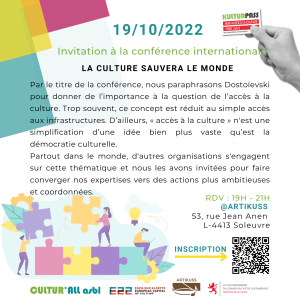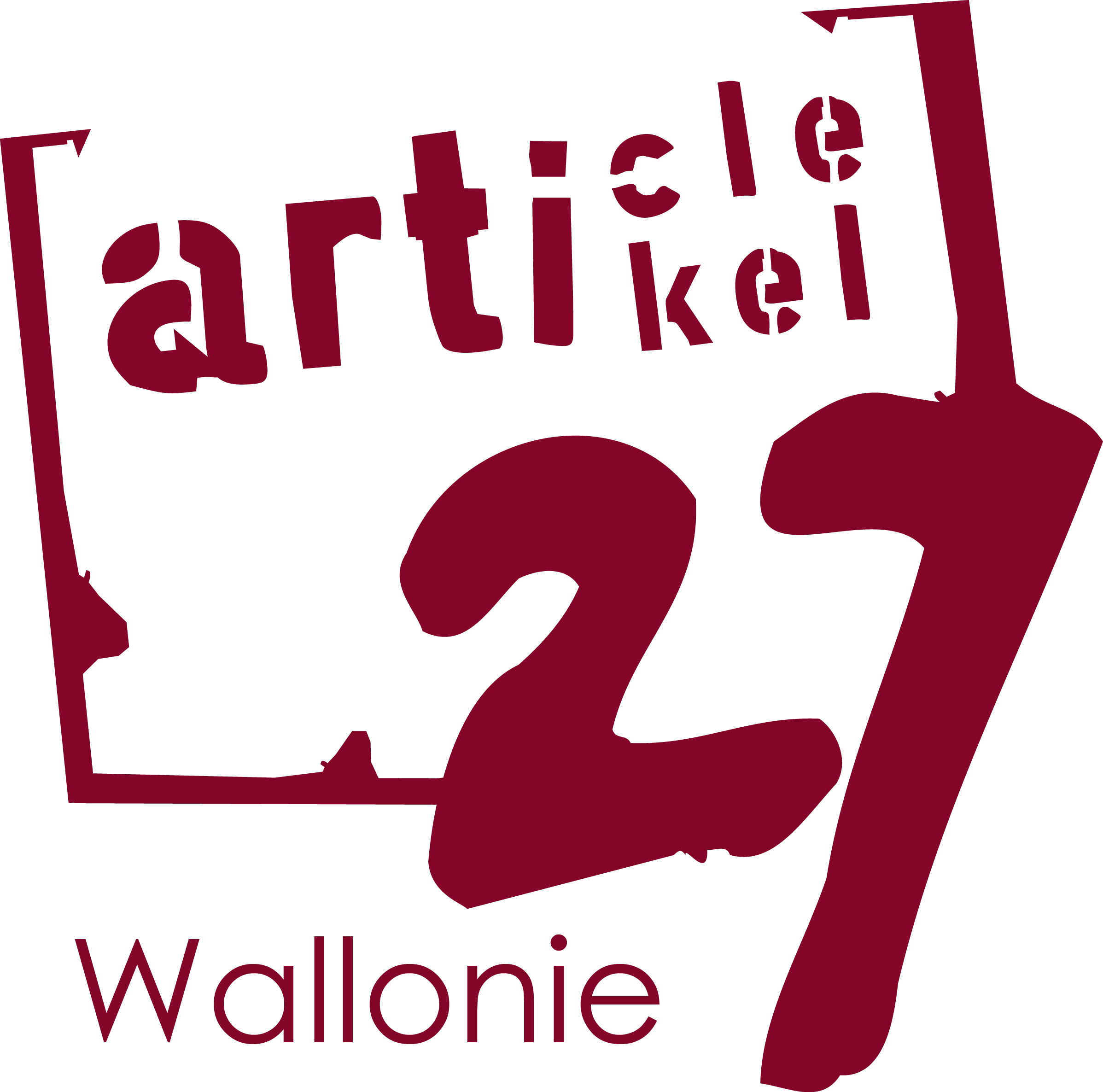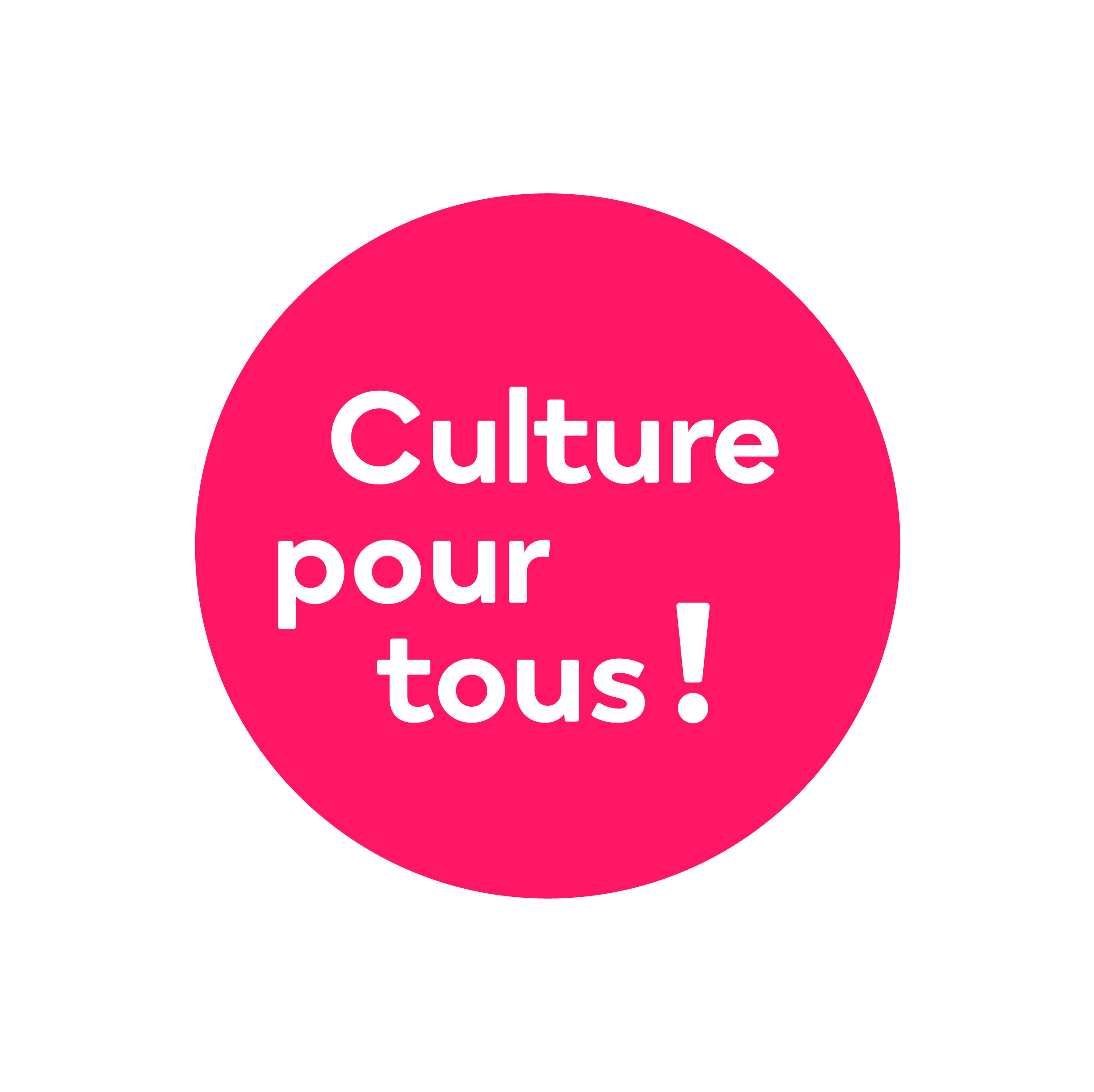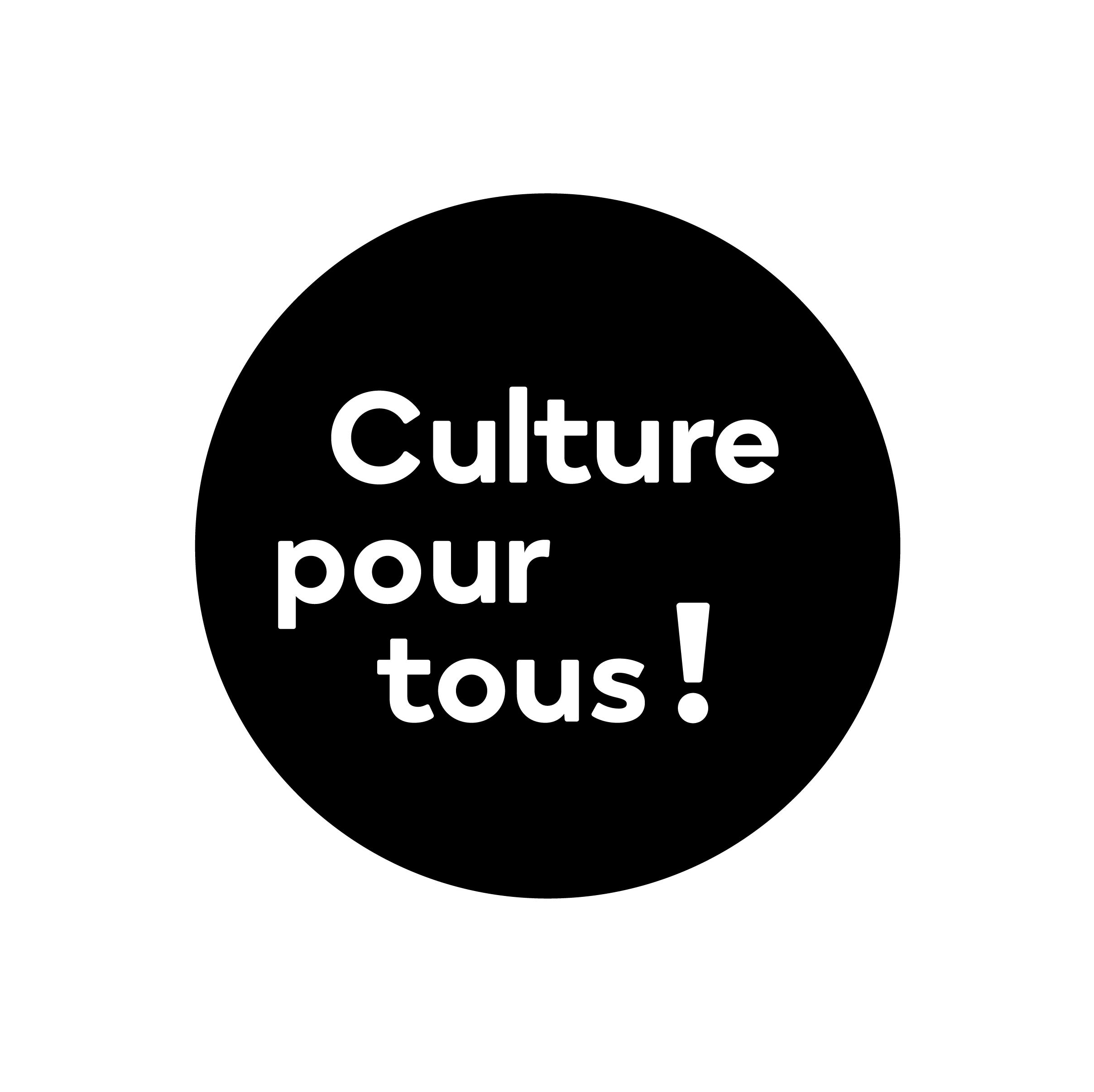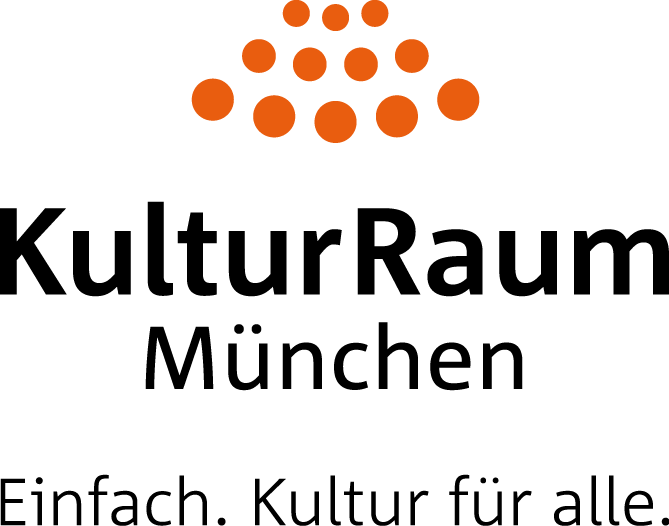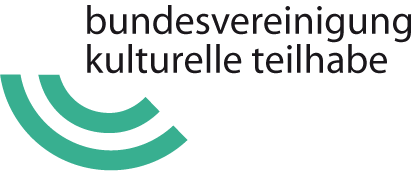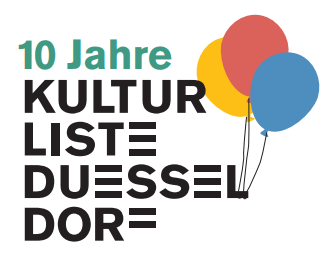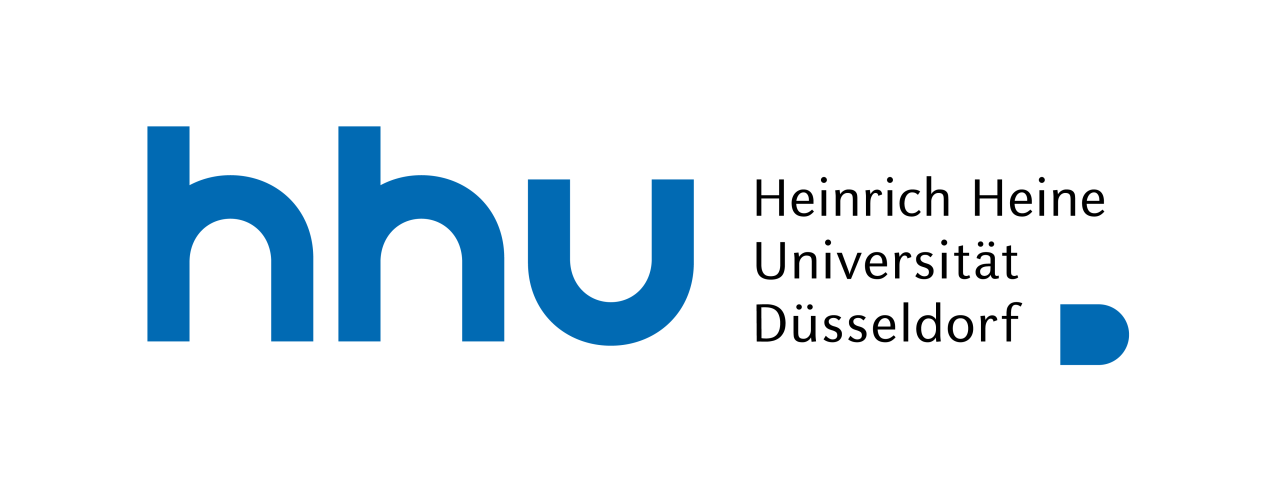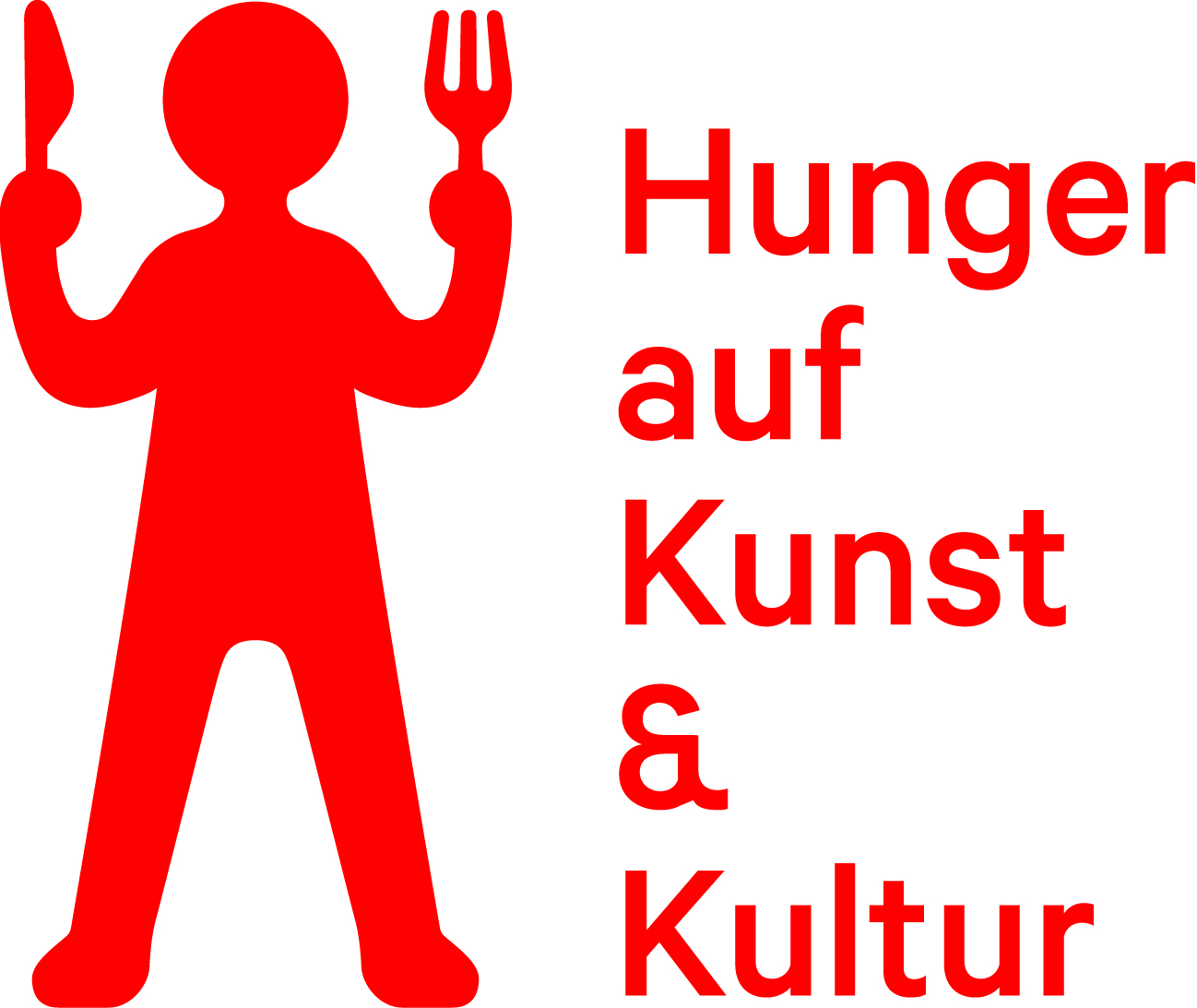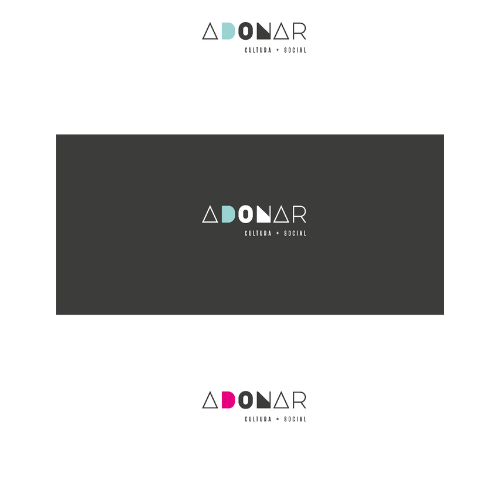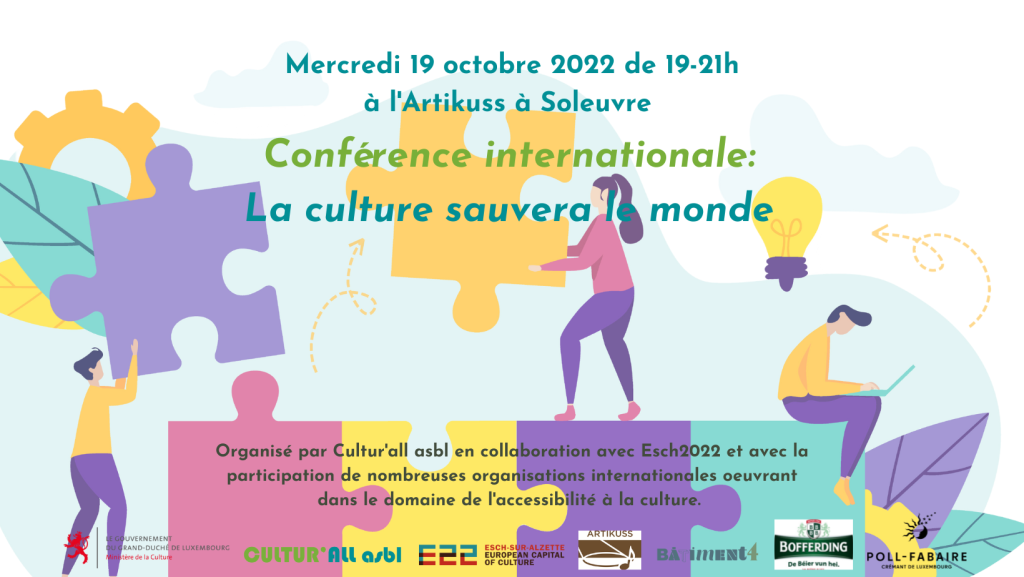
En 2007, lors de la capitale européenne de la culture à Luxembourg-ville, un séminaire appelé « Diversité culturelle et droits culturels – pour quoi faire ? » a mené à la création de Cultur’all asbl et au lancement du Kulturpass.
Aujourd’hui, avec l’appui de la capitale européenne de la culture Esch2022, Cultur’all asbl veut jeter les bases pour créer une plateforme au niveau international rassemblant les acteurs engagés dans la démocratisation culturelle en organisant un colloque à Esch-sur-Alzette du 17 au 19 octobre 2022.
Nous clôturerons le colloque par une conférence publique autour de la question de l’accessibilité à la culture : « La culture sauvera le monde ».
Inscription par mail à : marianne.david@culturall.lu
La conférence sera également accessible par zoom en suivant ce lien:
Organisations invitées:
Article 27 (Belgique/Wallonie)
Hunger auf Kunst und Kultur (Autriche)
Kulturelle Teilhabe (Allemagne/Munich)
Carte Blanche (France/Nantes)
Kaikukortti (Finlande)
Adonar Cultura + Social (Espagne/Communauté valencienne)
Culture pour tous (Canada/Québec)
Kulturlegi (Suisse)
Cultures du coeur (France)
Kulturleben-Berlin (Berlin, Allemagne)
Objectifs du colloque:
Suite à un échange avec nos homologues étrangers, nous avons identifié plusieurs axes de travail pour ces 3 journées :
– l’évaluation approfondie de l’impact social de nos actions,
– la relation et l’accompagnement des bénéficiaires dans le cadre de nos projets,
– l’accompagnement des partenaires sociaux dans la « culturisation » de leurs pratiques professionnelles
– la mise en place et le suivi du réseau de collaboration entre partenaires culturels et sociaux,
– sensibilisation des partenaires culturels aux barrières et aux préjugés.
Nous voulons profiter de la présence de nombreuses personnes avec beaucoup d’expertise sur ces questions pour sensibiliser le grand public, le monde associatif ainsi que les décideurs politiques.
L’accessibilité à la culture (démocratisation) mène aussi au concept de la démocratie culturelle, modèle de politique culturelle plus systémique avec une place pour l’émancipation et la participation citoyenne.
Présentation courte des organisations participantes au colloque et à la conférence de clôture:
Article 27 Belgique
L’ASBL Article 27 se donne la mission de sensibiliser, de faciliter la participation culturelle pour toute personne vivant une situation sociale et/ou économique difficile. Elle agit sur le coût de l’offre via un ticket modérateur valable à Bruxelles et en Wallonie (accès au lieu culturel et touristique pour 1 ticket Article 27 + 1,25€ ou autre montant préférentiel) et elle mise sur l’accompagnement pour encourager l’expression critique et/ou artistique (ateliers artistiques, animations et outils pédagogiques, sorties collectives, etc. ) Son travail se développe en réseau avec des partenaires sociaux, culturels, touristiques et les publics.
Culture pour tous Canada
Vision
Être un partenaire et un vecteur incontournable de l’engagement des citoyens envers la culture, et de leur participation au développement de la société par celle-ci.
Mission
Déployer des stratégies et des actions accessibles, inspirantes et inclusives visant à faire connaître et aimer la culture, facteur essentiel d’épanouissement et de santé des communautés. Susciter et développer l’engagement des organisations et des citoyens envers et avec la culture pour façonner ensemble notre culture collective.
Kaikukortti Finland
Kaikukortti is a card used in more than 50 municipalities in Finland. With the card the cardholders can get free tickets for example to festivals, museums, theatre performances, concerts and adult education courses in all the municipalities which belong to the network. The aim of Kaikukortti is to improve the possibilities of young people, adults and families in a tight financial situation to participate in cultural life and engage in art. The card is issued to clients of the municipal social welfare and healthcare units. The cardholders can also obtain free tickets for their children or grandchildren to events that they will attend themselves.
KulturRaum München
Through additional projects for children and teenagers, refugees and disabled persons we make sure that we also reach groups which are more difficult achieve.
KulturLeben Berlin – Schlüssel zur Kultur e.V.
The non-profit association KulturLeben Berlin – Schlüssel zur Kultur e.V. has been an integral part of Berlin’s social and cultural infrastructure for 12 years (founded in 2010). Predominantly on a voluntary basis, it demonstrably makes an important contribution to the implementation of social inclusion. The association is actively committed to cultural participation by free cultural tickets mediated free of charge to people with low incomes who cannot afford a cultural visit.
Berlin cultural event organizers provide KulturLeben Berlin guests with free cultural tickets that would otherwise not be sold. The voluntary team of KulturLeben Berlin invites theguests to a cultural visit in a personal telephone call.
Kulturliste Düsseldorf e.V and Heinrich-Heine-University Düsseldorf
The Kulturliste Düsseldorf e.V. is a charitable institution that ensures entry to cultural venues for all – no matter their income. Based in Düsseldorf, Germany the charity works with a network of more than 200 cultural and social institutions to provide free entry to cultural events for people from low income households. The charity was funded in 2012 and has since enabled more than 40,000 free visits to cultural events.
Based at the Heinrich-Heine-University Düsseldorf, the research project “cultural participation and citizen science” uses empirical research to find out more about the cultural participation rates of people with a low or now income. Working closely with ten charitable organisations from all over Germany, the researcher, Christine Stender, and her team use citizen science as a method to gain insights into the research field, share knowledge and collaborate on conceptualising and implementing the research analysis, co-creatively.
KulturLegi Switzerland
Hunger auf Kunst und Kultur Austria
« Hunger auf Kunst und Kultur » (Austria) is a non-profit association that focuses on the discourse about the significance and accessibility of culture for all people. The main idea is to support and enable people living in precarious financial circumstances to get free access to cultural institutions. The so-called “Kulturpass” offers the possibility to do so. Using this “card” socially disadvantaged persons can obtain free entrance at numerous cultural institutions. The « Kulturpass » was established in 2003 by Airan Berg, the former co-director of the Viennese theatre Schauspielhaus and by Martin Schenk, founder and chairman of the NGO “Die Armutskonferenz” – a network against poverty and social exclusion.
Cultures du Coeur France
Since 1998, Cultures du Coeur acts in France:
-to encourage the access to cultural, sports and leisure facilities for people in precarious situations and/or those who are economically and socially vulnerable.
– to promote cultural and sports mediation as a lever for personal development and social and professional inclusion
-to facilitate the networking of cultural and social actors in coordination with institutional partners
-to be an actor in the definition and implementation of public policies for inclusion
-to raise awareness, support and train professionals in the social and cultural field
-to develop a pole of expertise in mediation in the social field…
Adonar Espagne
Adonar is a non-profit association that emerged in 2018, which aims to accompany and strengthen the cultural and artistic sector to develop initiatives with social impact in the Valencian Community.
We seek that culture and art take an active role in the systemic approach to social challenges and problems, thus contributing to improving the opportunities for cultural participation of people and groups that are excluded or at risk of exclusion.
We encourage encounter, dialogue and collaborative work between different actors and we build bridges between the cultural and social spheres as a fundamental condition to generate positive and sustainable transformations.


